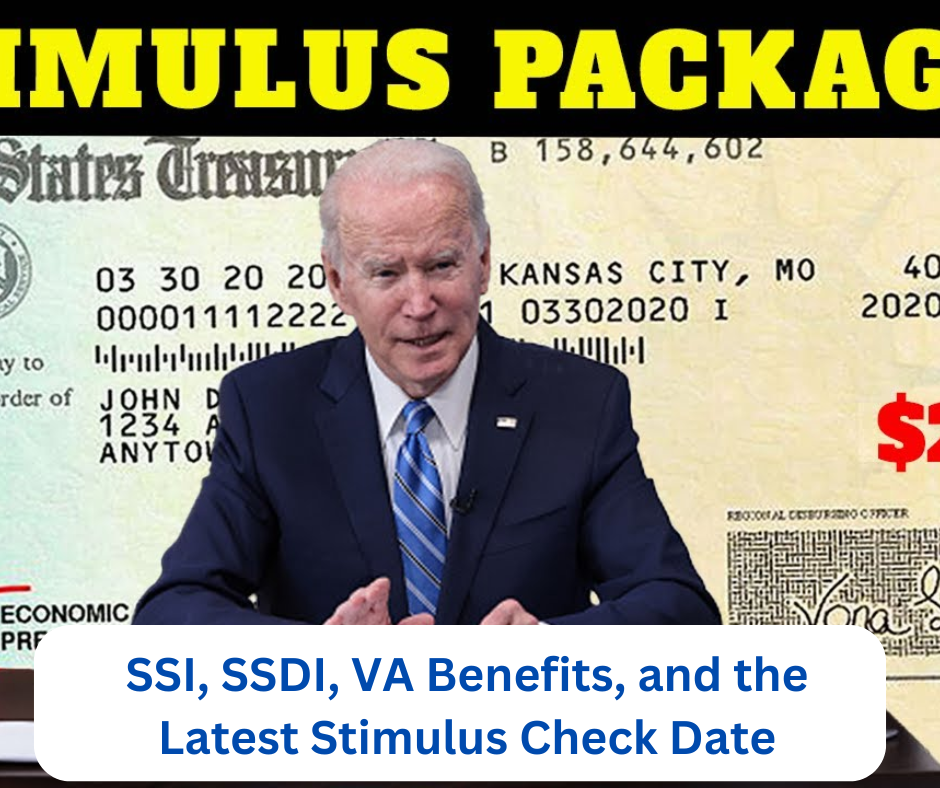In recent years, the stimulus check has become a critical financial relief for many Americans. For individuals receiving Supplemental Security Income (SSI), Social Security Disability Insurance (SSDI), and Veterans Affairs (VA) benefits, understanding the impact and eligibility for these checks is essential. This article provides a comprehensive guide on the stimulus check date and how it relates to those on SSI, SSDI, and VA benefits.
What Is SSI, SSDI, and VA Benefits?
Supplemental Security Income (SSI) is a federal income supplement program designed to help aged, blind, and disabled people who have little or no income. It provides cash to meet basic needs for food, clothing, and shelter. Unlike Social Security benefits, SSI is not based on your previous work or a family member’s prior work.
Social Security Disability Insurance (SSDI) is a federal insurance program that provides benefits to people who cannot work due to a significant disability. SSDI is funded by payroll taxes, meaning that recipients have worked and paid into the Social Security system for a certain period before becoming disabled.
Veterans Affairs (VA) benefits are provided to those who served in the military and include a wide range of financial support for disabilities, education, healthcare, and housing. Veterans with service-connected disabilities may receive monthly compensation payments based on the severity of their condition.
How Stimulus Checks Work for SSI, SSDI, and VA Recipients
When the federal government issues stimulus checks, eligibility often extends to recipients of SSI, SSDI, and VA benefits. However, the process for receiving these funds may vary slightly depending on the program.
1. Automatic Payments
For most SSI and SSDI recipients, stimulus payments are typically automatic. The government uses the information already on file with the Social Security Administration to determine eligibility and payment amounts. This means that if you are receiving SSI or SSDI benefits, you do not need to take additional steps to receive your stimulus payment.
VA beneficiaries may also receive their stimulus payments automatically, especially if they are not required to file a tax return. The Department of Veterans Affairs works closely with the IRS to ensure that eligible veterans receive their payments promptly.
2. Non-Filers and Filing Requirements
While many recipients of SSI, SSDI, and VA benefits automatically receive their stimulus checks, some individuals might need to take extra steps. For example, if you have dependent children who are eligible for the additional payment, you may need to file a simple tax return or use the IRS’s Non-Filers tool to claim these benefits.
It’s important to note that if you missed out on previous stimulus payments, you could still claim them when filing your taxes. The Recovery Rebate Credit allows you to receive any missed stimulus payments from the previous year.
The Latest Stimulus Check Date: What You Need to Know
The government periodically issues stimulus checks as part of broader economic relief efforts, and staying updated on the latest stimulus check date is crucial for planning your finances.
1. Announcements and Eligibility
The government usually announces new stimulus checks through official channels, including the White House, the IRS, and the Treasury Department. As a recipient of SSI, SSDI, or VA benefits, you should regularly check these announcements to know when the next payment might arrive.
Eligibility for these checks remains largely consistent, with most SSI, SSDI, and VA beneficiaries qualifying automatically. However, specific details, such as the amount and distribution method, can vary from one round of stimulus payments to another.
2. Direct Deposit, Paper Checks, and Debit Cards
The method by which you receive your stimulus check can depend on how you receive your SSI, SSDI, or VA benefits. Typically, if you receive your benefits via direct deposit, your stimulus payment will also be deposited directly into your bank account.
For those receiving paper checks or payments through prepaid debit cards, your stimulus check will arrive in the same format. It is important to keep your address and payment information up to date to avoid delays.
Potential Delays and How to Address Them
While the government aims to distribute stimulus checks as quickly as possible, delays can occur due to various reasons. Understanding these potential issues can help you mitigate them and receive your payment promptly.
1. Incorrect or Outdated Information
One of the most common reasons for payment delays is incorrect or outdated information on file with the SSA or VA. If you’ve recently changed your bank account or mailing address, ensure that this information is updated with the relevant agencies.
2. Issues with Non-Filers
If you or your dependents fall into the non-filers category and haven’t taken the necessary steps to claim your payment, this could result in a delay. Using the IRS’s Non-Filers tool can help ensure you receive your stimulus check without unnecessary hold-ups.
3. Missing Payments
If you suspect your payment is missing, the IRS provides tools like the “Get My Payment” portal, which allows you to track the status of your stimulus check. Additionally, if you haven’t received a payment you were expecting, it may be necessary to file a Recovery Rebate Credit on your next tax return.
Conclusion
For recipients of SSI, SSDI, and VA benefits, understanding how stimulus checks work and staying informed about the latest stimulus check dates is crucial. The government continues to provide this financial support, and by keeping your information up to date and being proactive, you can ensure that you receive your payments without unnecessary delays.
